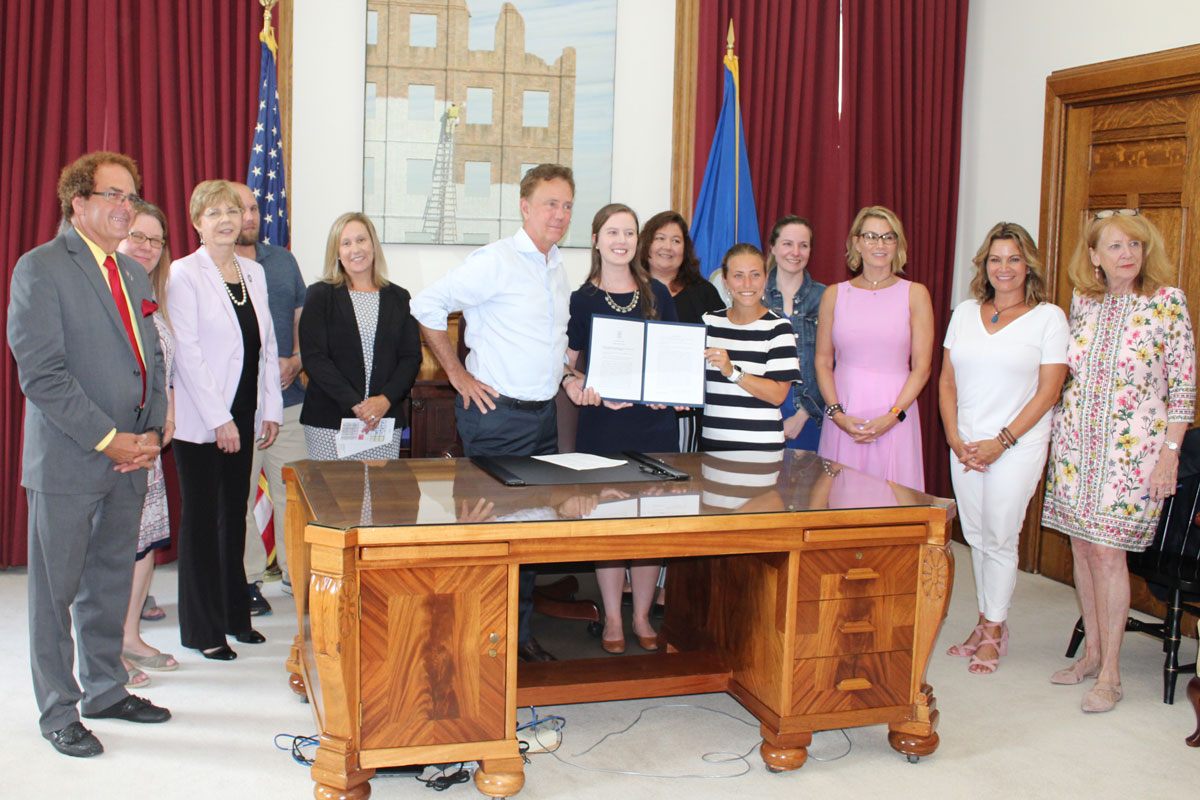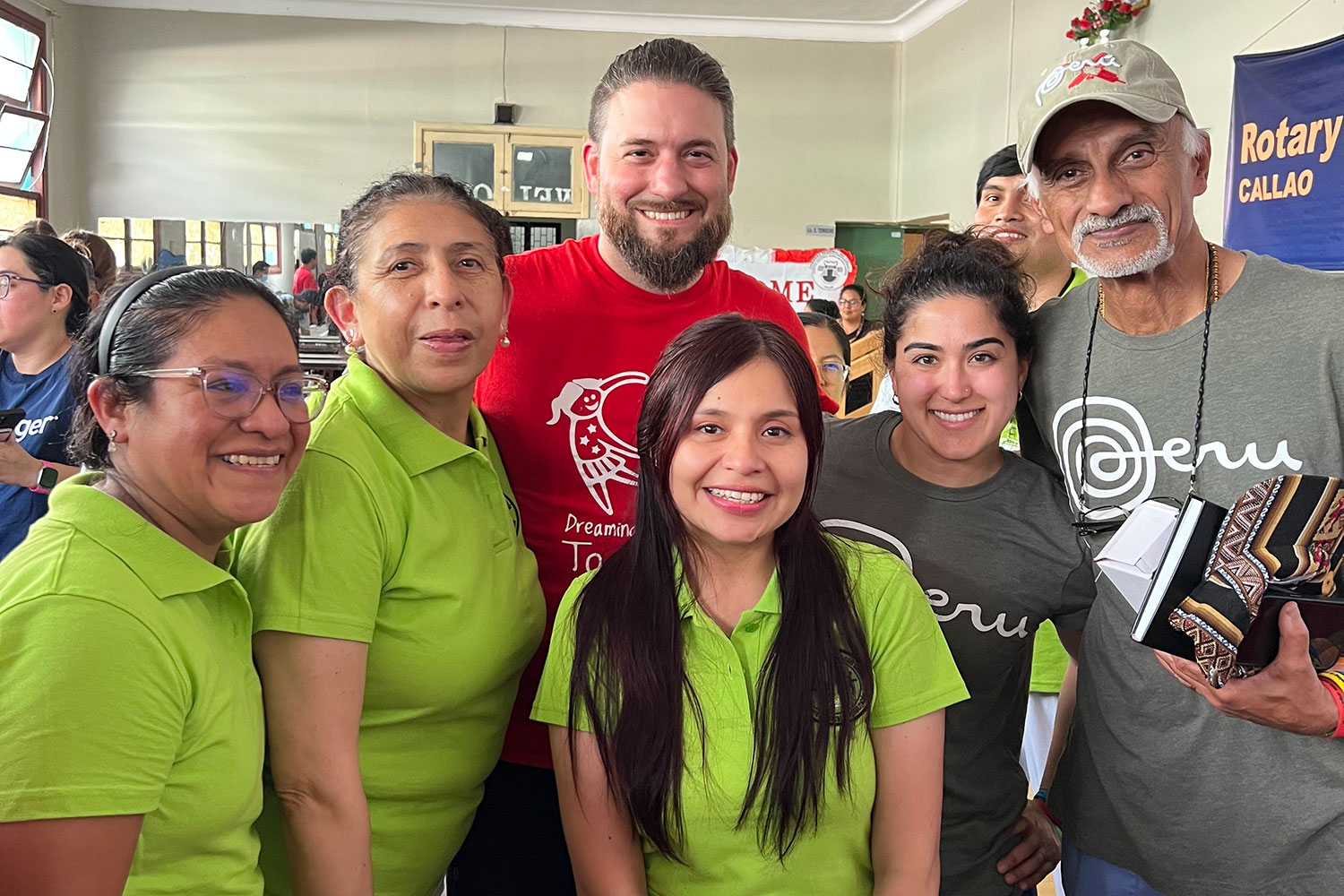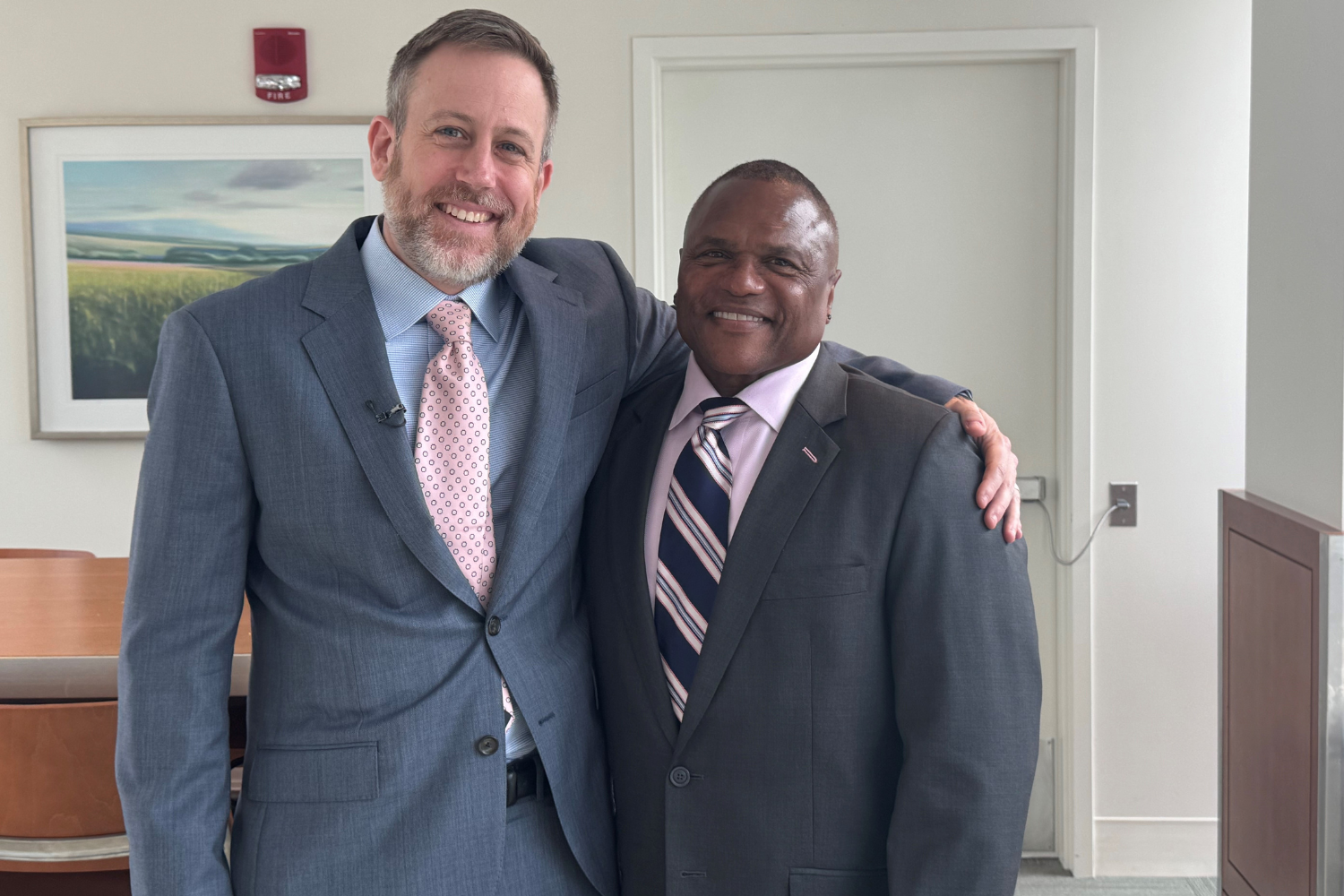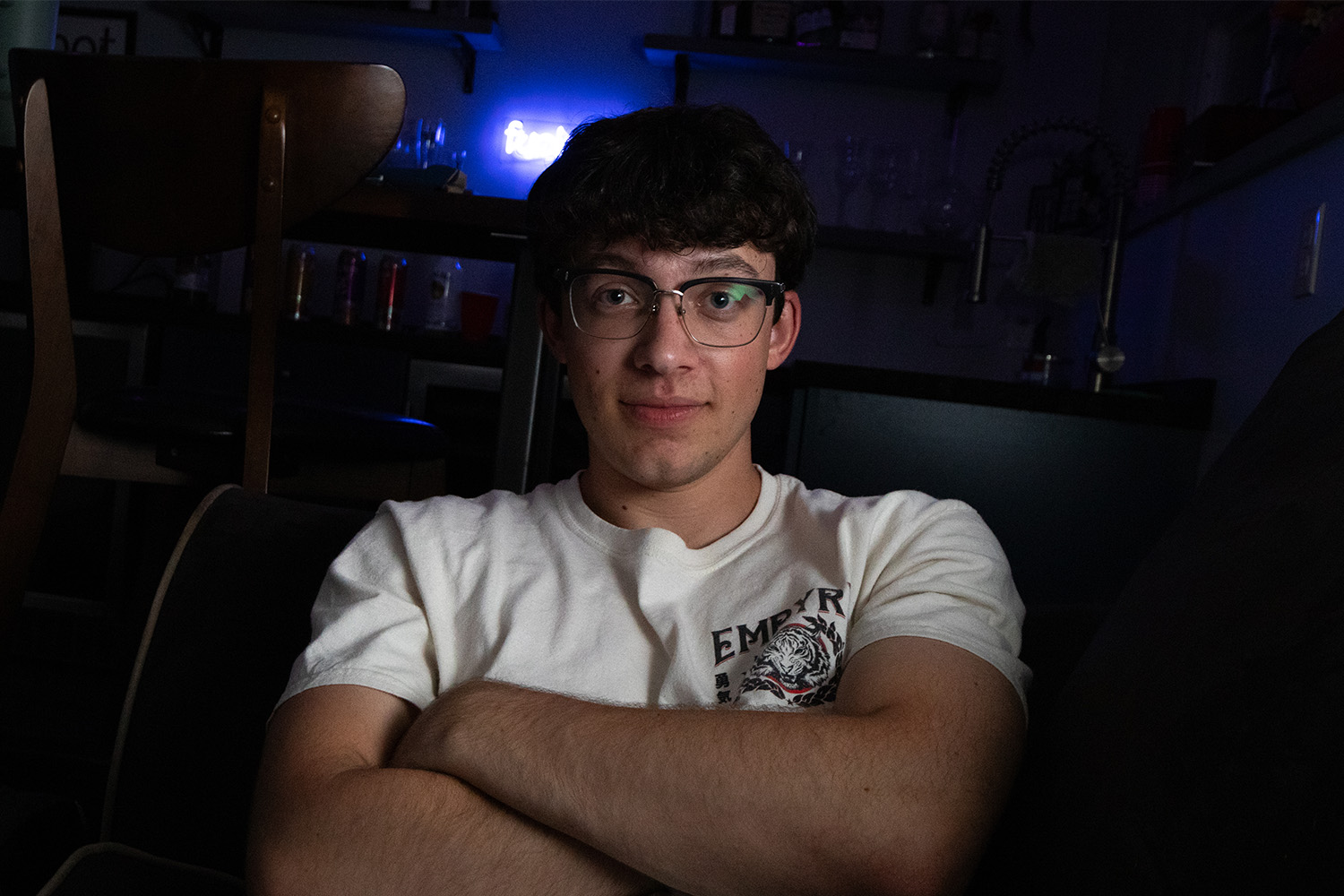Not only do UConn students have a role in a new state law that provides training and visual aids to help first responders overcome communication barriers, they helped create the law.
“An Act Concerning Training for Certain Public Safety and Emergency Services Personnel,” which took effect Jan. 1, tasks the students, working with the UConn Center for Excellence in Developmental Disabilities (UCEDD), to come up with materials to assist emergency medical technicians, firefighters, and police officers when interacting at a scene with those who have an impairment or disability that limits their ability to communicate effectively.
“When responding to an accident or emergency, if the first responders and those they are helping have trouble understanding each other, critical time is lost,” says Mary Beth Bruder, a professor of public health sciences at the UConn School of Medicine and UCEDD director. “The students wanted to expand upon work we had done when we created a flipbook for first responders about how to respond appropriately to persons with disabilities. Their idea to add the section on those with communication impairments was heard by State Representative Liz Linehan as part of a training activity with legislators. She made it happen and we at the UCEDD are so grateful for her advocacy.”
Linehan is the chair of the House of Representative’s Committee on Children.
“I loved it so much, I put it in a bill,” Linehan tells the Meriden Record-Journal. “It’s great legislation. It’s needed. I’m so glad we were able to pass it in bipartisan fashion.”
Gov. Ned Lamont signed the measure in July.
UCEDD, located in the Exchange across from the UConn Health campus in Farmington, sponsors the Leadership Education in Neurodevelopmental Disabilities (LEND) program.
The flipbook Bruder refers to is the result of a group research project by students who are fellows in the LEND program. It provides visual guides to help navigate nonverbal communication, and is intended as a resource to be kept in patrol cars and other emergency vehicles.
“The idea for this project stemmed from a pre-existing document created by the UCEDD named ‘Tips For Emergency Personnel: Supporting People with Unique Access or Functional Needs (including disabilities),’” says LEND fellow Michael Figueiredo, Jr. “My group really fell in love with this document because it provided some much-needed information to emergency personnel on interacting with specialty populations. Further discussion led us to find a missing component: Now that we know more about this individual’s needs, how do we communicate in a difficult situation?
“I believe that once this document is dispersed digitally and in hard copy throughout the state, first responders will quickly realize the value of such tools. We’ve heard of too many situations where individuals with unique needs are mislabeled and accidentally mistreated by those trying to help. This is our attempt at taking a step in the right direction – appropriate access and communication for everyone.”
LEND fellow Taylor Tarka agrees.
“As a speech language pathology student, and now a speech language pathologist, I have experience communicating with individuals who don’t utilize verbal communication, and understand the communication breakdowns that can occur when there are no other options readily available,” Tarka says. “As a group, we noticed that there was a lack of resources for emergency personnel to utilize for individuals who use nonverbal communication in the case of an emergency. It is our hope that this communication aid will decrease the stress and frustration from nonverbal communicators and emergency medical personnel in the event of an emergency.”
One of the LEND students who worked on the project is Leona Adamczyk, who brings a personal perspective.
“This was important for all people, regardless of abilities,” Adamczyk says. “However, as a parent of a child with disabilities, this allows me a universal tool to teach him how to ask for help when needed; taking away some fears that no one will be able to communicate with my son.”



